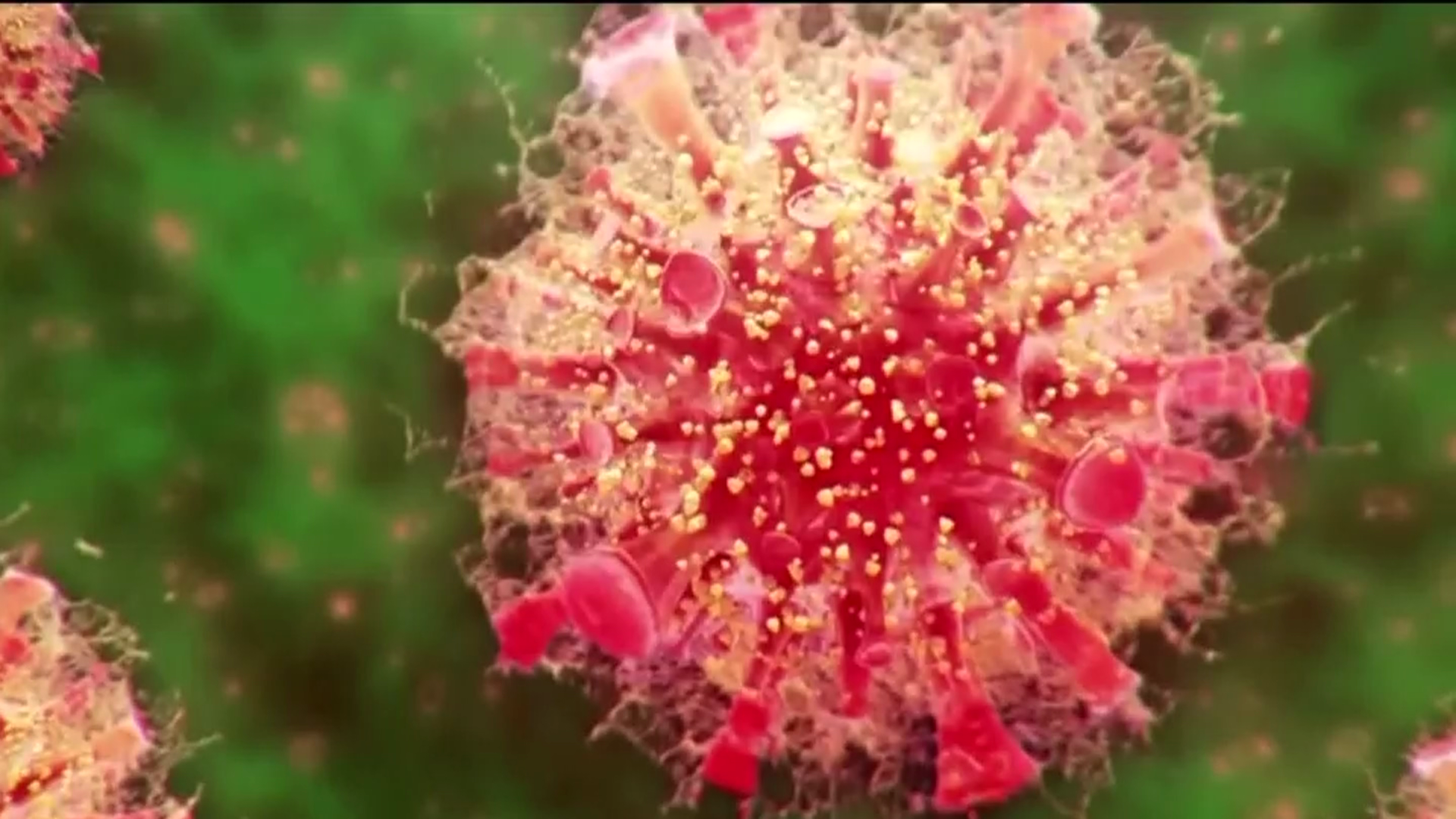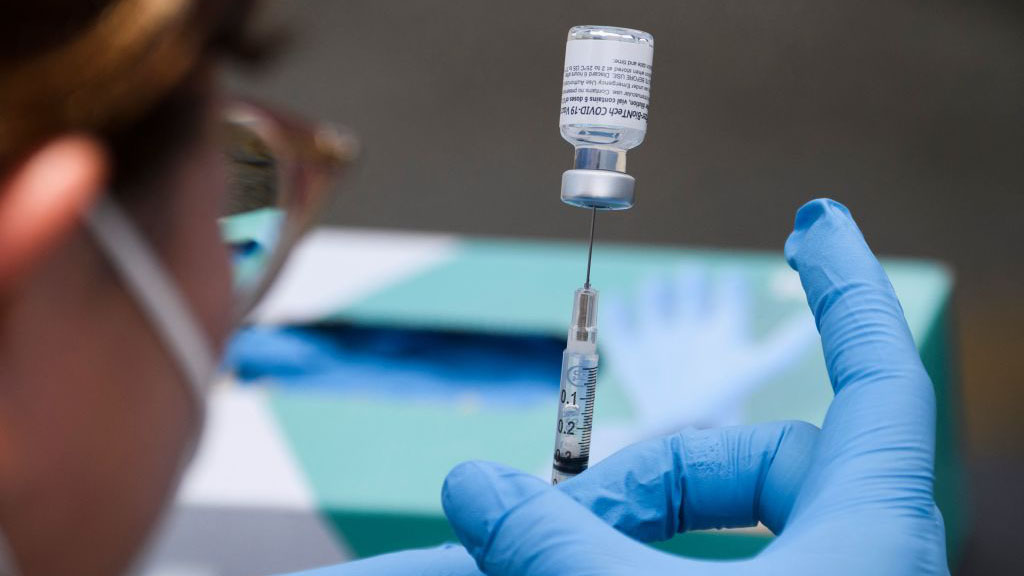Now that U.S. health officials have recommended COVID-19 vaccine boosters for all Americans, regardless of age, what does it mean for you?
In a joint statement Wednesday, the directors of the Centers for Disease Control and Prevention, Health and Human Services, the National Institute of Health and other top medical experts, outlined plans to begin administering booster shots beginning next month.
WATCH ANYTIME FOR FREE
Stream NBC10 Boston news for free, 24/7, wherever you are. |
The move is being driven by both the highly contagious variant and preliminary evidence that suggests the vaccine’s protection against serious illness dropped among those vaccinated in January.
U.S. health officials had already recommended boosters for some people with weakened immune systems, such as cancer patients and organ transplant recipients, who may not have gotten enough protection from vaccines to begin with.
Get updates on what's happening in Boston to your inbox. Sign up for our News Headlines newsletter.
Here's what we know so far:
When will booster shots be administered, and who goes first?
The administration is preparing to begin administering the booster shots starting the week of September 20, assuming that the Food and Drug Administration and the CDC sign off on the safety and effectiveness of the doses by then.
Individuals would be eligible for a third dose of either the Moderna or Pfizer-BioNTech shots eight months after their second dose.
"Based on our latest assessment, the current protection against severe disease, hospitalization, and death could diminish in the months ahead, especially among those who are at higher risk or were vaccinated during the earlier phases of the vaccination rollout," federal health officials said in their statement.
Massachusetts officials have not said yet how the process will be handled locally, but it is expected to mirror the original vaccine rollout. Those who were fully vaccinated earliest, including health care workers, nursing home residents and other older people, will be first in line to get a booster shot before they are available to the general public.
"We are prepared to offer booster shots for all Americans beginning the week of September 20 and starting 8 months after an individual’s second dose. At that time, the individuals who were fully vaccinated earliest in the vaccination rollout, including many health care providers, nursing home residents, and other seniors, will likely be eligible for a booster," U.S. officials said Wednesday. "We would also begin efforts to deliver booster shots directly to residents of long-term care facilities at that time, given the distribution of vaccines to this population early in the vaccine rollout and the continued increased risk that COVID-19 poses to them."
Massachusetts Gov. Charlie Baker said during an interview on GBH Radio Wednesday that he first learned about the booster shot announcement via media coverage and not directly from the White House.
He said once state officials have more information about timing and other details, they will move "very aggressively" to make sure that those who are eligible to receive boosters get them.
A Massachusetts Department of Public Health spokesperson said Wednesday that the Baker Administration is still awaiting guidance from the federal government and anyone with questions about boosters should contact their health care provider.
What about those who got the Johnson & Johnson vaccine?
Right now, the plan does not include those who received the single-dose Johnson & Johnson vaccine.
But the statement released Wednesday by top health officials said that it is anticipated that booster shots will likely be needed for people who received Johnson & Johnson in addition to those who received the two-shot Pfizer and Moderna vaccines.
"Administration of the J&J vaccine did not begin in the U.S. until March 2021, and we expect more data on J&J in the next few weeks," the statement said. "With those data in hand, we will keep the public informed with a timely plan for J&J booster shots as well."
Why should people get a third shot?
The most recent announcement comes as the extra-contagious delta version of the coronavirus surges through much of the country, pushing new cases, hospitalizations and deaths to heights not seen since last winter.
For months, officials had said data still indicated that people remain highly protected from COVID-19, including the delta variant, after receiving the two-dose Pfizer or Moderna regimen or the one-shot Johnson & Johnson vaccine. But U.S. health officials made clear Wednesday that the time for boosters has now arrived.
As for those with immune deficiencies, it’s harder for vaccines to rev up an immune system suppressed by certain medications and diseases, so those patients don’t always get the same protection as otherwise healthy people — and small studies suggest for at least some, an extra dose may be the solution.
Are there any risks with getting a third dose? What about side effects?
The CDC reports there is "limited information about the risks of receiving an additional dose of vaccine, and the safety, efficacy, and benefit of additional doses of COVID-19 vaccine in immunocompromised people continues to be evaluated."
The agency noted that side effects with the third shot "were similar to that of the two-dose series."
The most common symptoms include fatigue and pain at the injection site, but "most symptoms were mild to moderate."
As with previous doses of the vaccine, the CDC notes that, "serious side effects are rare, but may occur."
What do local doctors and national health experts think?
Local medical experts are somewhat divided on the need for booster shots for the general public.
"That's not the way to end the global pandemic," Tufts Medical Center epidemiologist Dr. Shira Doron told NBC10 Boston.
She said variants, and the trajectory of the pandemic, are by and large being driven by the unvaccinated. So that's where she believes our resources would be best put to use.
"Those millions and millions of doses that would otherwise be used for people who are already somewhat immune are way better used for people's first dose," Doron said.
But UMass Memorial Medical Center Medical Director Dr. Robert Klugman had a different view.
"The research is coming fast and furious and there's been good evidence now that a third shot does increase antibody levels," he said.
With breakthrough infections increasing with the now-dominant and more contagious delta variant, and knowing that immunity wanes over time, booster shots make sense as we head into the fall, Krugman said.
"It's a matter of a race of time versus the delta variant," he said, "and further disease development in this country and the world."
Brigham and Women's Hospital's chief of infectious diseases, Dr. Daniel Kuritzkes, also supports booster shots: "I certainly hope that people are going to go and get boosted if they've already completed their vaccination series."
National health officials are also joining together to explain that boosters are necessary.
"Recent data makes clear that protection against mild and moderate disease has decreased over time," said U.S. Surgeon General Dr. Vivek Murthy.
"You don't want to find yourself behind playing catch up," said Dr. Anthony Fauci, chief medical advisor to the president and director of the National Institute of Allergy and Infectious Diseases.
CDC Director Dr. Rochelle Walensky detailed data collected over the last several months that illustrate the double-edged problem we're now facing.
"The data consistently demonstrate a reduction of vaccine effectiveness against infection over time," said Walensky.
And that's compounded by more recent data on breakthrough infections that show "waning effectiveness against symptomatic and asymptomatic infection in the context of the delta variant, from 92% prior to delta to 64% with delta," Walensky said.



